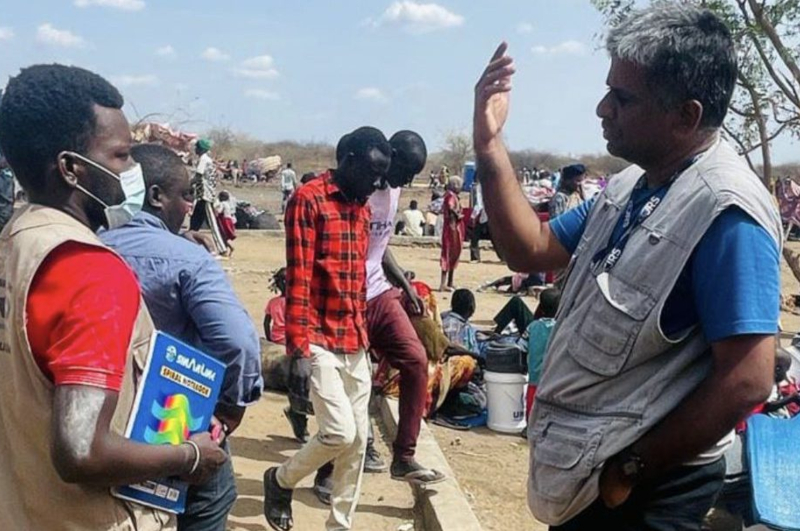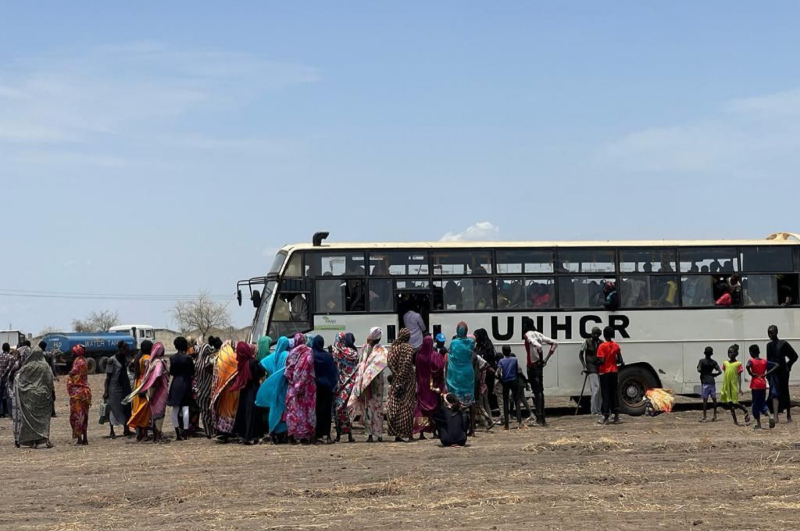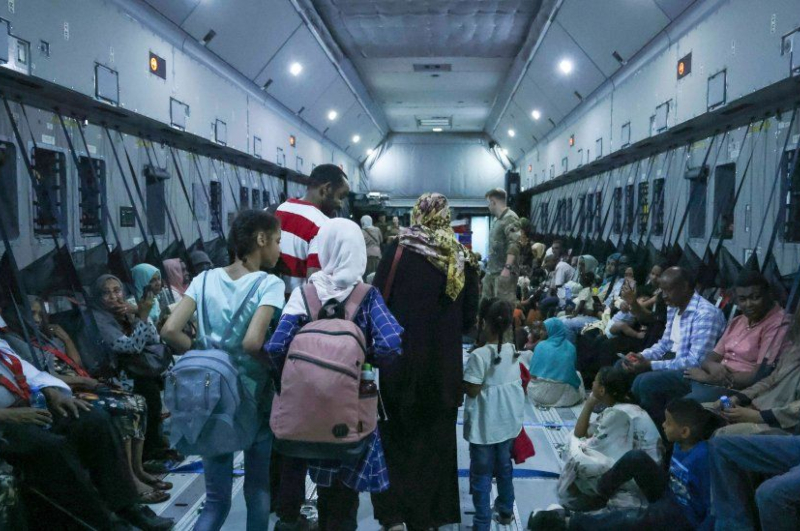

Sudan has continued to face a complex and volatile situation due to the continued clashes between Sudan’s military and the country’s paramilitary force.
Hundreds of people have lost their lives and thousands keep crossing Sudan borders every day in search of safety. We are facing a catastrophic humanitarian crisis. The response of all humanitarian actors in the field is being insufficient due to an extended fundraising crisis that does not allow us to respond to the increasing needs of the vulnerable, forcibly displaced population.
As of September 6, more than 5 million people have been forcibly displaced, with more than 4 million Internally Displaced, and more than 1 million people crossing Sudan’s borders into its neighbouring countries.
Chad is the main country receiving refugees, with more than 412,000 people having crossed from Sudan (56% of them being females, and 59% underaged children). South Sudan continues to receive mainly South Sudanese returnees (91% of the people crossing its border), with a total of more than 250,000 people having crossed into South Sudan (49% of them being females, and 48% underaged children).
The most urgent needs that the forcibly displaced populations are facing are: water and sanitation facilities, health, food support, shelter, and education.
As JRS, we continue operating in both frontiers, namely Chad and South Sudan, to provide services to the vulnerable forcibly displaced people who are running away from the horrors of the conflict.
Working hand in hand with our partner organizations on the ground, our response in Chad has been focused on child protection. We try to ensure that no child is left out of the classrooms. For that reason, we are offering school materials and are raising awareness about the importance of access to education.
Field teams have been identifying school-age children and qualified teachers at reception sites, and we have been advocating with local Chadian authorities for refugee children to be accepted into public schools. Boys and girls have lost a large part of the school year due to the outbreak of war. We as JRS work to make up for lost time in their education. We have also deployed our Safety & Security Advisor into Chad to support our teams on the ground.
In South Sudan, we have been offering recreational activities and protection for children, psychosocial support, therapy and distribution of menstrual hygiene kits, basic physiotherapy, and rehabilitation services, as well as specialized referrals to other organizations on the ground.
We have identified more needs such as offering educational services and more protection spaces for youths, but to address these needs more mobilization of funds is needed.
In the case of South Sudan, more than 90% of the displaced population are South Sudanese who had previously sought refuge in Sudan years ago, fleeing the multiple civil wars that the country has experienced in recent decades. In the current displacement, they are being considered as returnees and not refugees. Consequently, mobilizing funds for the response in the country is even more complicated, as many international donors have decided to focus their efforts on Sudanese refugees in other countries such as Chad or Egypt. Despite this, the needs of returnees in South Sudan, who have no ties to their country of origin and have no one and nowhere to go, are comparable to those of the refugee population.
The needs of the population are constantly growing, and the capacity of NGOs and host communities is not sufficient to provide a dignified and rapid response to the deteriorating situation.
The conditions of people displaced to both countries are increasingly deplorable, and the capacity of NGOs is diminishing. Despite this, the mobilization of funds for the response to the conflict is stagnated and humanitarian organizations are increasingly alarmed that this humanitarian crisis is becoming entrenched and falling into oblivion.
We, as JRS, were able to mobilize more than 1 million dollars for the Education in Emergency response in Chad, while South Sudan response continues being severely underfunded. We need to continue mobilizing funds, so we can accompany the most vulnerable people in Chad and South Sudan.
Sadly, Sudan is no longer in the media spotlight, but its people still need the support of the international community.
We will continue being present where the needs are greatest. This response equips us to be prepared and contribute to coping with the human consequences of this outbreak of violence, as we continue to serve, accompany, and advocate for those who need us most during this tough time.
In case new significant updates arise, we will notify you using the same means after our regular meetings.
We continue to be at your disposal for any queries or to address any topic related to the above information shared.
Media contacts:
JRS Eastern and Western Africa
Sudan Conflict Crisis Group
You can reach us at sccg@jrs.net
________You can contact us also at jrsearcomms@jrs.net for Eastern Africa Region and to waf.comms@jrs.net for Western Africa Region.
Find out how JRS is supporting refugees from Sudan by clicking {Here}. Thank you for your continued support.
Select Payment Method
Pay by bank transfer
If you wish to make a donation by direct bank transfer please contact Fr Paul Hamill SJ treasurer@jesuits.africa. Fr Paul will get in touch with you about the best method of transfer for you and share account details with you. Donations can be one-off gifts or of any frequency; for example, you might wish to become a regular monthly donor of small amounts; that sort of reliable income can allow for very welcome forward planning in the development of the Society’s works in Africa and Madagascar.
Often it is easier to send a donation to an office within your own country and Fr Paul can advise on how that might be done. In some countries this kind of giving can also be recognised for tax relief and the necessary receipts will be issued.




